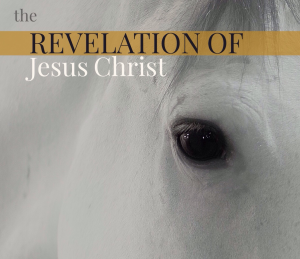Chapter 17 contains the third round of YHWH’s validation of both the leadership of Moses and Aaron but also the need for an established priesthood. God established the role and responsibility of the priests for a specific purpose and those who have attempted to subvert that are intruding upon His specific intention and His choice for who is to serve in the role.
In the wake then of the swallowing up of Korah et al in response to their rebellion and the plague that fell upon the people after their subsequent grumbling, YHWH proposes another visual confirmation of His position on the matters at hand. Each tribe of Israel is to take a staff (cut branch from a tree) and write their father’s name on it (the father’s name likely being the name of son of Jacob that their tribe name came from, like Reuben, Dan, etc.) Except in the case of Levi, Aaron’s name is to be listed. The rods are supposed to be placed at the Tent of Meeting where God will make the rod of “…the man whom I choose” to sprout. Moses cajoles the people and they agree.
I do find it curious that they continue to submit to these kinds of tests. They have always been wrong, every single time, as recently as a few days before when the ground literally opened up and swallowed wrong people and Aaron had to haul tail through the camp to stave off a plague against others. And yet here we are.
As we would expect, the Aaron staff from the house of Levi has gone the whole nine yards, not only sprouting but going all the way to producing ripe almonds. Branches cut from trees may show signs of life for a short time afterwards, but they certainly don’t rebound, resurrect, and start kicking out nourishment. God’s involvement here is clear and robust. The arguments around His intention with Aaron and the priesthood should cease as only they have been given the ability to approach God.
The evidence clear, the various chiefs take their unsprouted rods back home. That’s a pretty humbling scene, and it should be. Not because it makes them somehow “lesser than” Aaron or the priests, but as a sobering reminder that they have been part of shallowly elevating themselves to a role that only God can grant. YHWH asks that the Aaron staff be kept with the holy things and the ark as a sign for those who have been part of the rebellion. Unlike the tassels in chapter 15 which were public and designed to keep people from doing the wrong thing, this reminder was logged as evidence that God has clearly and boldly made His way known and that further grumblings on this item will be met with judgment. Put frankly, YHWH has had enough. Persistent, willful, intentionally blind resistance to God and His ways will result in God taking action. He will not be thwarted by arrogant pursuit of human power.
Interestingly, all the things that are kept in the ark of the covenant bore witness to Israel’s failures. In the ark was the manna (that they complained about), the 10 Words (which had been broken in reaction to their idolatry) and Aaron’s rod, which YHWH used as proof of them being on the wrong side of history with their rebellion. And yet, it is this ark that contains these items where blood is sprinkled and atonement made (Leviticus 16). YHWH walks into His forgiveness and rescue with eyes wide open.
If there’s perhaps a more day to day lesson to be had here, it is likely that we should not covet the will that God has for another man’s life but strive to be faithful in our own. The likely element of the desire for earthly authority aside, where God has blessed someone to serve in a specific way, in leadership or prominence or otherwise, we should pray for them and ask that God’s will is done through them. Jealousy is foolishness as it proposes that the good YHWH has prepared for us is not to our liking.
As one could only hope, the people approach Moses with clarity on how things are. “Behold, we perish, we are undone, we are all undone. Everyone who comes near, who cones near to the tabernacle of YHWH shall die. Are we all to perish?” They are a dramatic bunch but at least where they have put their drama to use here it is actually pointing in the right direction.
